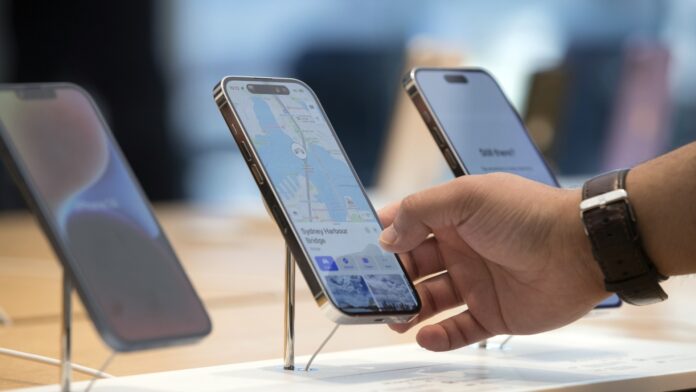Apple is reportedly set to allow third-party app stores on iOS, in response to an upcoming EU directive, Bloomberg reports(Opens in a new window).
The decision, which Bloomberg’s Mark Gurman says(Opens in a new window) might only impact iPhone and iPad users in the EU, is hugely significant as Apple has never allowed owners of its devices to download apps from alternative app stores.
The shift comes after the EU signed the Digital Markets Act (DMA) into law, which seeks to establish regulations for “digital gatekeepers” in order to “open markets.” The legislation(Opens in a new window) applies to “digital platforms that provide an important gateway between business users and consumers” and “whose position can grant them the power to act as a private rule maker.” It’s clear Apple and its App Store fall under this designation.
Via a press release, the European Commission says “gatekeepers” have to comply with agreements by March 6, 2024. As The Verge notes(Opens in a new window), the law means Apple will have to allow sideloading as well as third-party app stores.
In a series of tweets, Gurman says the changes will impact Apple software such as NFC (Near Field Communication) chip and camera access, and web browsing engines. The law could also open up Apple’s Find My network to more location accessories like Tile, according to The Verge.
Apple has had a walled-garden approach to third-party developers thus far, but this wall may be coming down, albeit with some resistance. As Bloomberg reports, Apple is considering verifying outside apps and potentially charging them a fee. In addition, the company hasn’t yet made a decision as to whether it will permit developers to install payment systems in apps.
However, resistance might prove futile. According to TechCrunch, Apple’s sideloading project has already started(Opens in a new window), and alternative app stores might become available with iOS 17. If third-party app stores become a reality on iOS, it means that developers won’t have to pay a 30% fee to Apple for in-app purchases, a charge that has caused a lot of consternation.
Recommended by Our Editors
Apple didn’t immediately respond to a request for comment.
The move comes as Apple works on another change triggered by an EU directive, this time in dropping the Lightning port for USB-C in new iPhones as part of an EU regulation that requires all phones, tablets, and cameras to use USB-C for charging before the end of 2024. Apple’s not a fan of the directive but has said it will comply as it has no choice.
Like What You’re Reading?
Sign up for Fully Mobilized newsletter to get our top mobile tech stories delivered right to your inbox.
This newsletter may contain advertising, deals, or affiliate links. Subscribing to a newsletter indicates your consent to our Terms of Use and Privacy Policy. You may unsubscribe from the newsletters at any time.
Hits: 0















